Gender, health and the Sustainable Development Goals
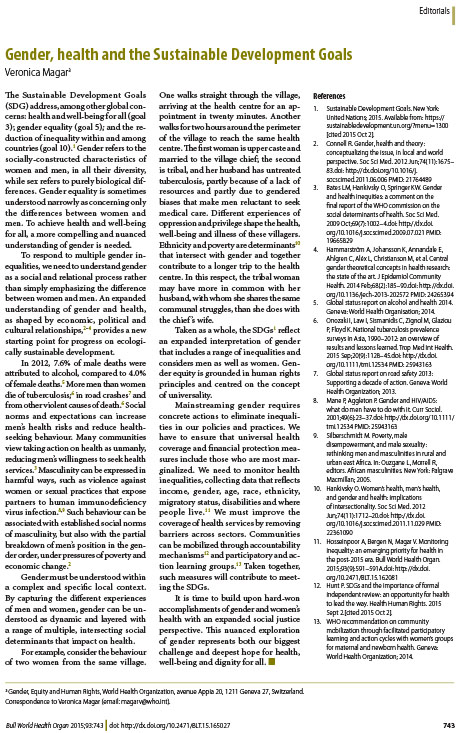
The Sustainable Development Goals (SDG) address, among other global concerns: health and well-being for all (goal 3); gender equality (goal 5); and the reduction of inequality within and among countries (goal 10). Gender refers to the socially-constructed characteristics of women and men, in all their diversity, while sex refers to purely biological differences. Gender equality […]
Pushing the boundaries of data to ensure gender equality across the life span
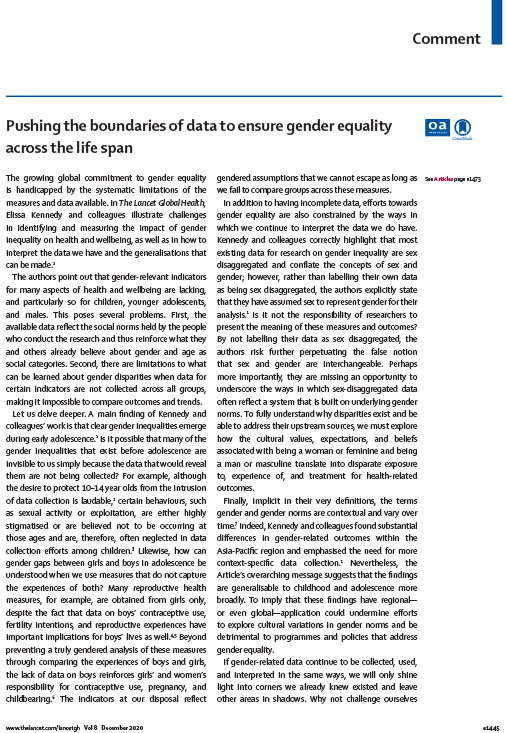
The growing global commitment to gender equality is handicapped by the systematic limitations of the measures and data available. In The Lancet Global Health, Elissa Kennedy and colleagues illustrate challenges in identifying and measuring the impact of gender inequality on health and wellbeing, as well as in how to interpret the data we have and the generalisations […]
Gender and global health: evidence, policy, and inconvenient truths
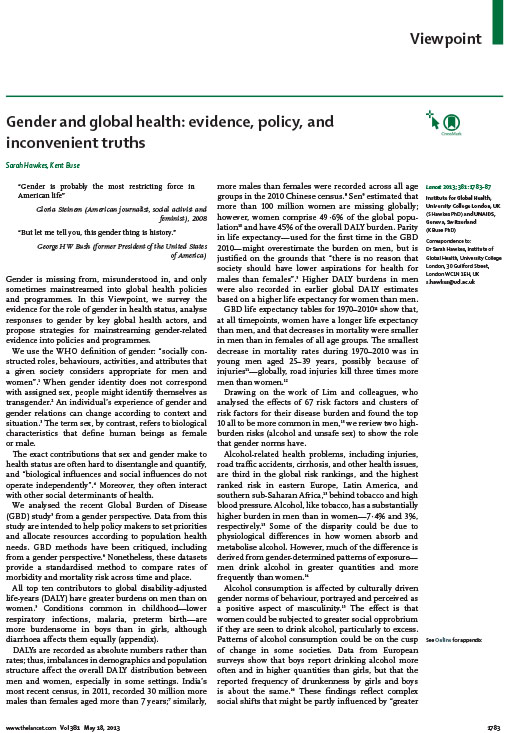
Gender is missing from, misunderstood in, and only sometimes mainstreamed into global health policies and programmes. In this Viewpoint, we survey the evidence for the role of gender in health status, analyse responses to gender by key global health actors, and propose strategies for mainstreaming gender-related evidence into policies and programmes.
COVID-19 and the gendered markets of people and products: explaining inequalities in infections and deaths
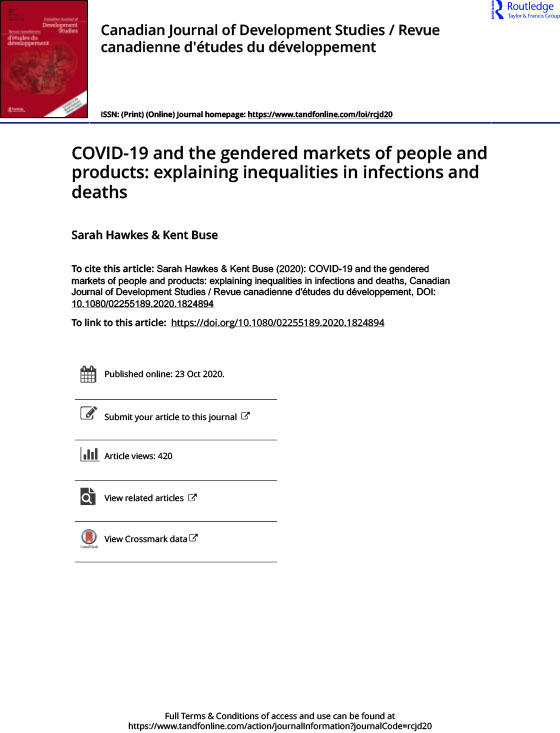
COVID-19 has exposed and exploited existing inequalities in gender to drive inequities in health outcomes. Evidence illustrates the relationship between occupation, ethnicity and gender to increase risk of infection in some places. Higher death rates are seen among people also suffering from non-communicable diseases – e.g. heart disease and lung disease driven by exposure to […]
Power, privilege and priorities: GLOBAL HEALTH 50/50 REPORT 2020
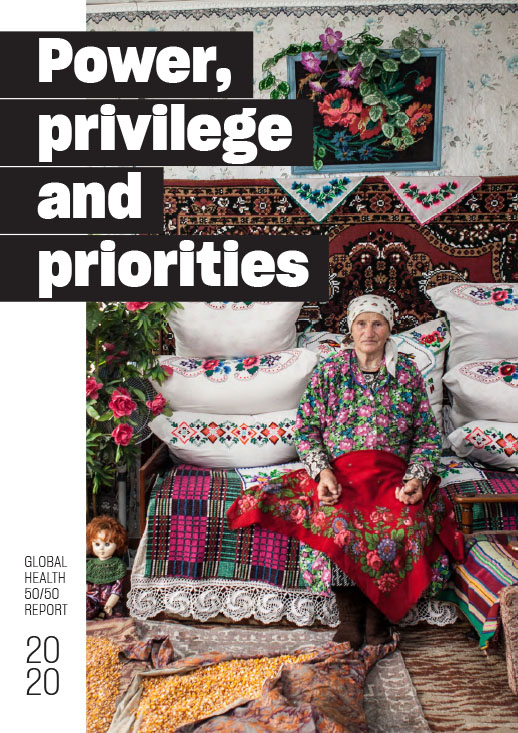
A review of the equality- and gender-related policies and practices of 200 global organisations active in health and health policy.
Raising the profile of men’s health
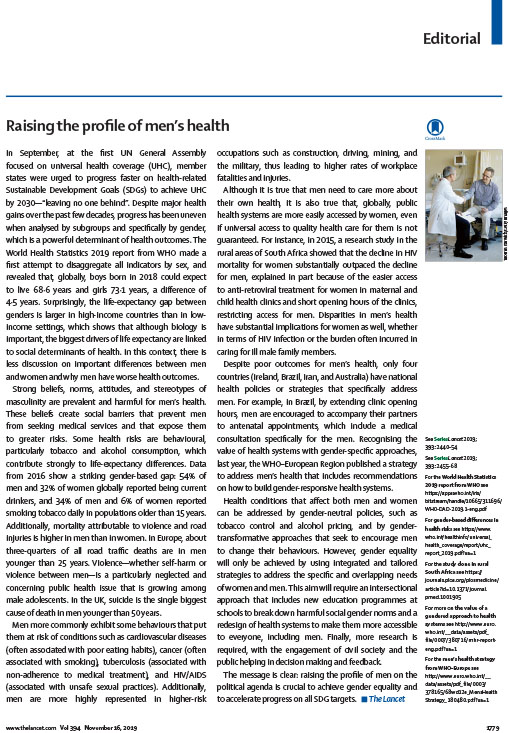
In September, at the first UN General Assembly focused on universal health coverage (UHC), member states were urged to progress faster on health-related Sustainable Development Goals (SDGs) to achieve UHC by 2030—“leaving no one behind”. Despite major health gains over the past few decades, progress has been uneven when analysed by subgroups and specifically by […]


